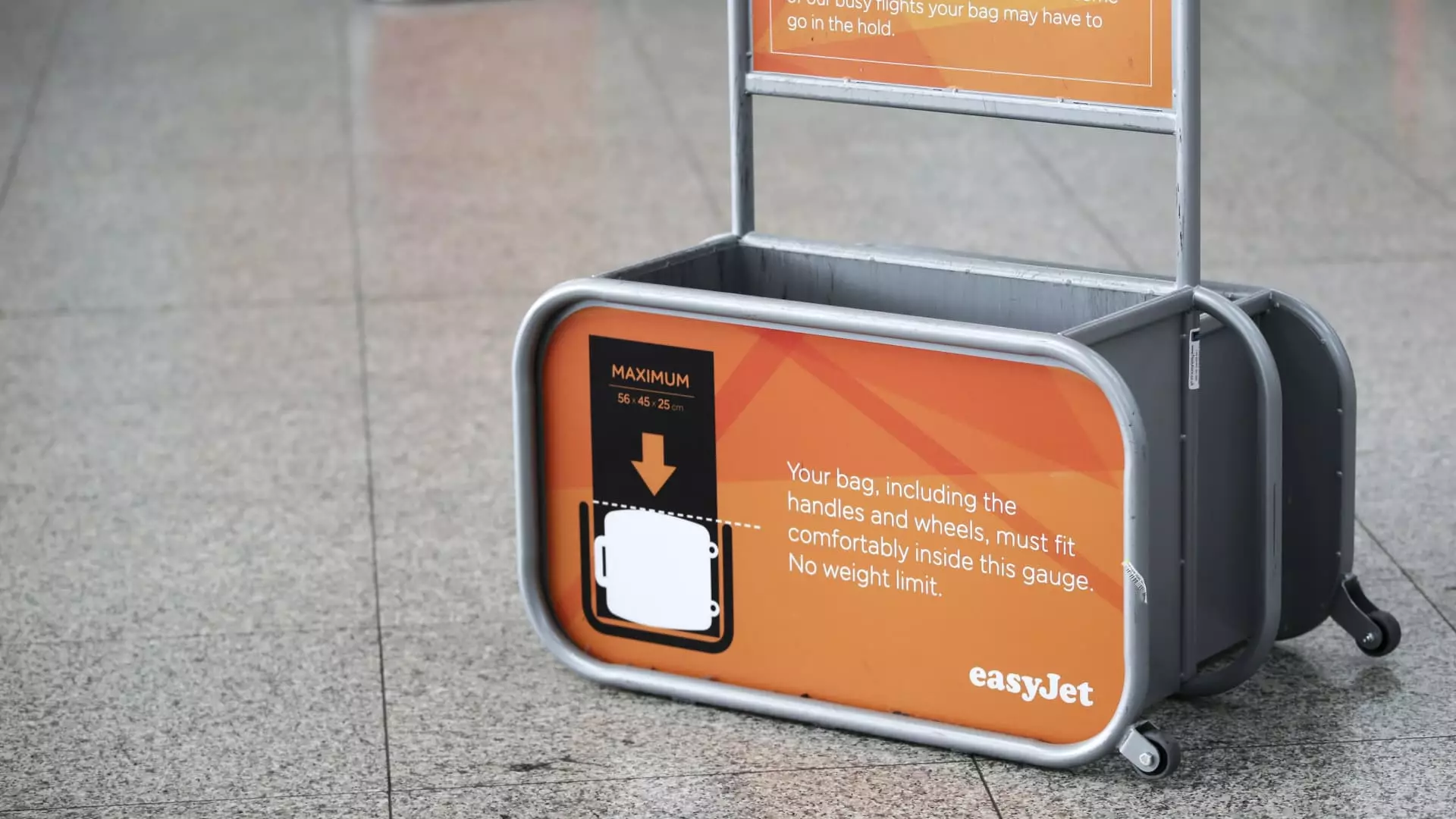The budget airline sector has emerged as a vital component of the aviation industry, leveraging accessible pricing structures and optional add-on services to maximize revenue. A recent report detailing easyJet’s financial performance highlights the substantial impact of ancillary revenue, shedding light on the strategies and challenges facing low-cost airlines today.
On Wednesday, easyJet announced an impressive £3.59 billion ($4.5 billion) generated from charging passengers for various optional services for the fiscal year ending in October. This substantial revenue, which includes fees for things like extra baggage, priority boarding, and in-flight meals, marked a 22% year-on-year increase. Specifically, the airline sector of easyJet alone saw ancillary revenue hit an all-time high of £2.46 billion—a 13% gain from the previous year.
The landscape for low-cost carriers has shifted significantly in recent years, with many airlines choosing to strip down what is included in base ticket prices. In a fiercely competitive environment where being the cheapest option is a primary goal, these airlines often turn to ancillary services to boost profitability. This movement underscores a broader industry trend where passengers are increasingly faced with unbundled fares, paying only for what they choose.
Despite easyJet’s promising financial results, the airline is navigating through turbulent regulatory waters. Just last week, Spain’s Ministry of Consumer Rights imposed fines on several low-cost airlines, including easyJet, citing “abusive practices” like charging extra for hand luggage and the reservation of adjacent seats for families. EasyJet alone was hit with a hefty fine of €29 million, a decision that CEO Johan Lundgren vehemently disputes.
Lundgren articulated his position on CNBC, stating, “We completely disagree with that; we think it goes completely against European law.” His comments reflect a deep concern that these regulatory measures could undermine the airline’s ability to offer tailored services aimed at passengers willing to pay more for extra comfort and convenience. He pointed out that approximately one-third of easyJet’s customers do not utilize any ancillary services, which further amplifies the argument that those who opt to pay extra should not bear the costs incurred by those who choose the low-cost option.
EasyJet is not alone in feeling the regulatory heat. Other airlines in Europe, including Ryanair and Vueling, have also expressed discontent regarding the fines, echoing sentiments raised by Spain’s Association of Airlines (ALA). The collective pushback from these carriers against the penalties indicates a shared belief that the fines could stifle the business strategies that have emerged in the wake of shifting consumer preferences. They argue that such practices are not only prevalent but essential for maintaining lower ticket prices.
The regulatory moves come as airlines grapple with issues beyond their control, such as the inflation of operational costs and pressures stemming from consumer behavior post-pandemic. EasyJet reported a profit before tax of £610 million, aligning with analysts’ projections and demonstrating a 34% increase year-on-year, which speaks volumes about the airline’s recovery trajectory. However, these headlines arrive amidst tumultuous market conditions, with competitors like Ryanair noting a drop in profits despite an uptick in passenger numbers, primarily due to declining fare prices.
Despite challenges, there’s an undeniable upward momentum in consumer demand for travel across Europe, which has partially contributed to easyJet’s impressive figures. Lundgren noted that many travelers are prioritizing their holiday experiences, indicating a robust desire for leisure travel that could signal future growth for budget airlines. As many of these carriers, including easyJet, have adapted to a post-COVID travel environment, they seem poised to leverage the resilience and adaptability fostered during the pandemic.
Nevertheless, airlines must also tread carefully as regulatory concerns continue to emerge. Navigating these challenges while maintaining customer satisfaction will be crucial. Should easyJet and its peers find a balance between offering desirable services and adhering to evolving consumer rights regulations, there remains ample opportunity for sustained growth in the burgeoning low-cost travel sector.

